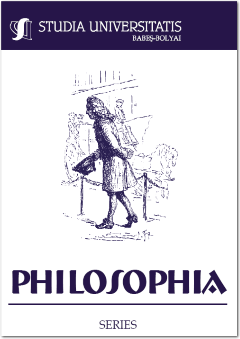CONFLICTING VALUES OF INQUIRY. IDEOLOGIES OF EPISTEMOLOGY IN EARLY MODERN EUROPE (ED. TAMÁS DEMETER, KATHRYN MURPHY AND CLAUS ZITTEL). BRILL, 2015
CONFLICTING VALUES OF INQUIRY. IDEOLOGIES OF EPISTEMOLOGY IN EARLY MODERN EUROPE (ED. TAMÁS DEMETER, KATHRYN MURPHY AND CLAUS ZITTEL). BRILL, 2015
Author(s): Robert ArnăutuSubject(s): Philosophy
Published by: Studia Universitatis Babes-Bolyai
Summary/Abstract: What are the standards for natural philosophical inquiry? To this question Early Modern philosophers came with different particular answers, with different ideologies of knowledge that centre around values such as usefulness or moral goodness. The challenges that early modern philosopher had to deal with were less the discovery of new facts and theories but the creation of the standards and values according to which his endeavours represent genuine inquiries into nature. Acknowledging the important social, politic, economic, etc. background of inquiry, insisted upon in the last 30 years, the present volume propose to “turn back to questions of the epistemic content itself” and analyse the epistemic values involved in the seventeenth and eighteenth-century scientific inquiry. The 15 contributions to this volume explore the main battlefields in which the epistemic values of Early Moder¬nity were forged: the devices that orient and shape the ideology of inquiry, the role and characteristics of testimony, the reli¬gious requirements for epistemic research, the strategies of conflict, the exceptions raised by “the science of man”, and the role of ethics per se in shaping epistemic values. The conflict between various val¬ues at play in Early Modern period shaped and are constitutive to the epistemic practices and theories developed during these battles for science.
Journal: Studia Universitatis Babes-Bolyai - Philosophia
- Issue Year: 61/2016
- Issue No: 1
- Page Range: 129-131
- Page Count: 3
- Language: English

